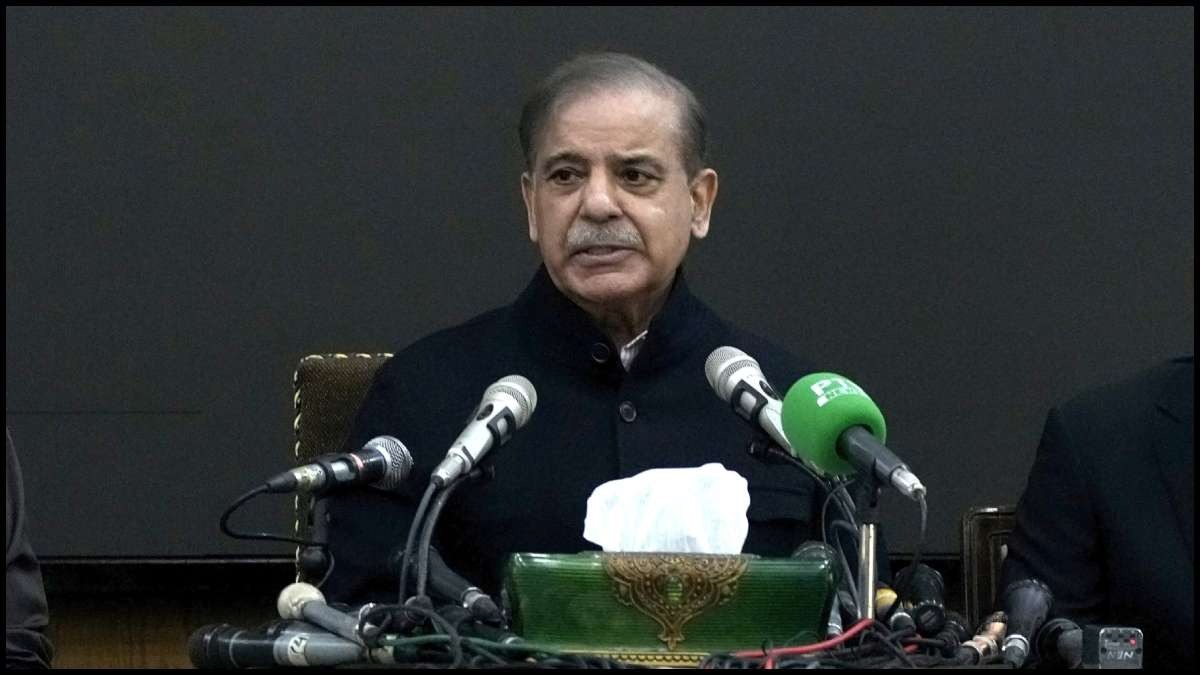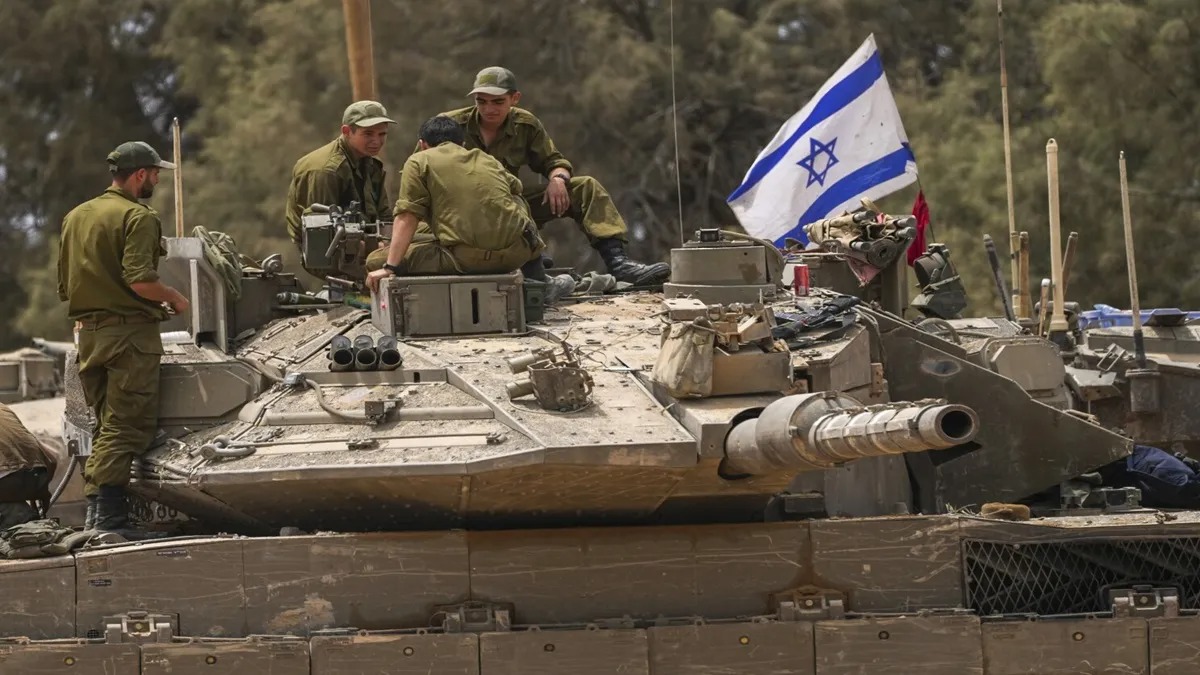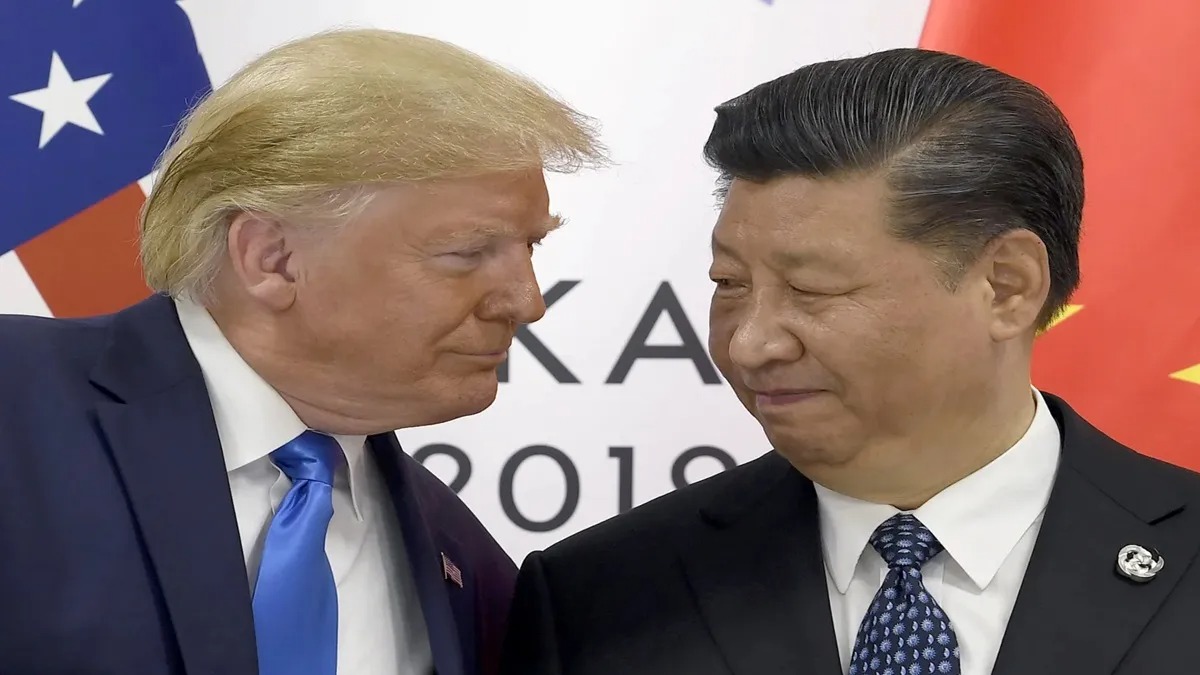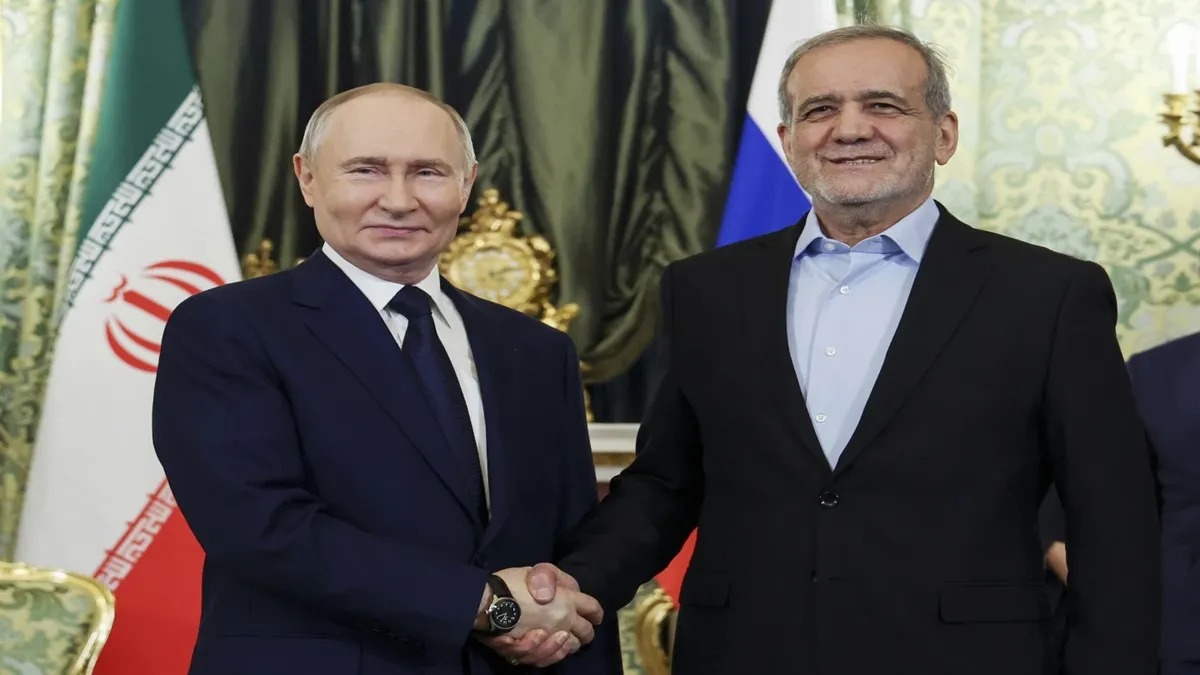
International: Pakistan Prime Minister Shehbaz Sharif on Friday said his country wanted peaceful relations with all neighbours and that progress and peace are "intertwined". He asserted that Pakistan has no intention of aggression towards any country but would not compromise its freedom and independence.
While addressing Defence and Martyrs Day, Shehbaz said, "Pakistan has no intention of aggression against any country…It has played a role in peace and stability in the region... Peace is our first desire" as progress and peace are 'intertwined'." The ceremony was attended by the army's top brass, senior military and governmental officials, and families of soldiers, among others.
At the event, Pakistan Army Chief Asim Munir said the country would "not allow political differences to turn into hatred" and asserted that the strong relations between the army and the public would act as the foundation to defeat any 'enemy' trying to create rifts between the two. Speaking on the Kashmir issue, Munir said it was not just a national issue but one of regional and global significance.
Meanwhile, Union Home Minister Amit Shah on Friday unequivocally said India is not in favour of talks with Pakistan until terrorism ceases, emphasising that "talks and bombs cannot go together". While releasing BJP's manifesto for Jammu and Kashmir, he asserted that Article 370 was a thing of the past and no one can bring it back.
"We are not in favour of talks with Pakistan unless and until terrorism ends. But we will definitely talk to the youth of Kashmir," he told reporters.
India-Pakistan relations
The remarks by Shehbaz Sharif came after Pakistan formally invited Prime Minister Narendra Modi to attend the Shanghai Cooperation Organisation (SCO) meeting scheduled in October in Islamabad. The invitation was confirmed by the Ministry of External Affairs last month. "We have received an invitation from Pakistan for SCO summit," said MEA spokesperson Randhir Jaiswal.
Islamabad and New Delhi have a long history of strained relations, primarily due to the Kashmir issue as well as the cross-border terrorism emanating from Pakistan. India has been maintaining that it desires normal neighbourly relations with Pakistan while insisting that the onus is on Islamabad to create an environment that is free of terror and hostility. Pakistan downgraded its ties with India after the Indian Parliament abrogated Article 370 on August 5, 2019.
“An invitation has also been sent to the Prime Minister of India, Narendra Modi,” Dawn quoted Foreign Office spokesperson Mumtaz Baloch as saying, adding that some countries had already confirmed their participation in the meeting. "It will be informed in due course which country has confirmed." When asked about ties with India, Baloch said, “Pakistan does not have direct bilateral trade with India.”
'Era of uninterrupted dialogue with Pakistan is over'
Earlier, External Affairs Minister S Jaishankar said in strong words that the "era of uninterrupted dialogue with the neighbouring country is over, adding that "actions have consequences". Speaking at a book launch event in New Delhi, Jaishankar said, "the era of uninterrupted dialogue with Pakistan is over. Actions have consequences. So far as J&K is concerned, Article 370 is done."
"So, the issue is what kind of relationship we can contemplate with Pakistan...What I do want to say is that we are not passive, and whether events take a positive or a negative direction, either way, we will react," he said. Reacting to the statement, Baloch said the Kashmir dispute was an internationally recognised issue that must be resolved in accordance with the UN Security Council resolutions.
She rejected the notion that the Jammu and Kashmir dispute has been or could be settled "unilaterally". The spokesperson said that while Pakistan remains committed to diplomacy and dialogue, it will respond with resolve to any hostile actions. "True peace and stability in South Asia can only be achieved through a settlement in accordance with UNSC resolutions and the inalienable rights of the Kashmiri people," she said in a statement.
--Advertisement--

 Desk
Desk Share
Share






